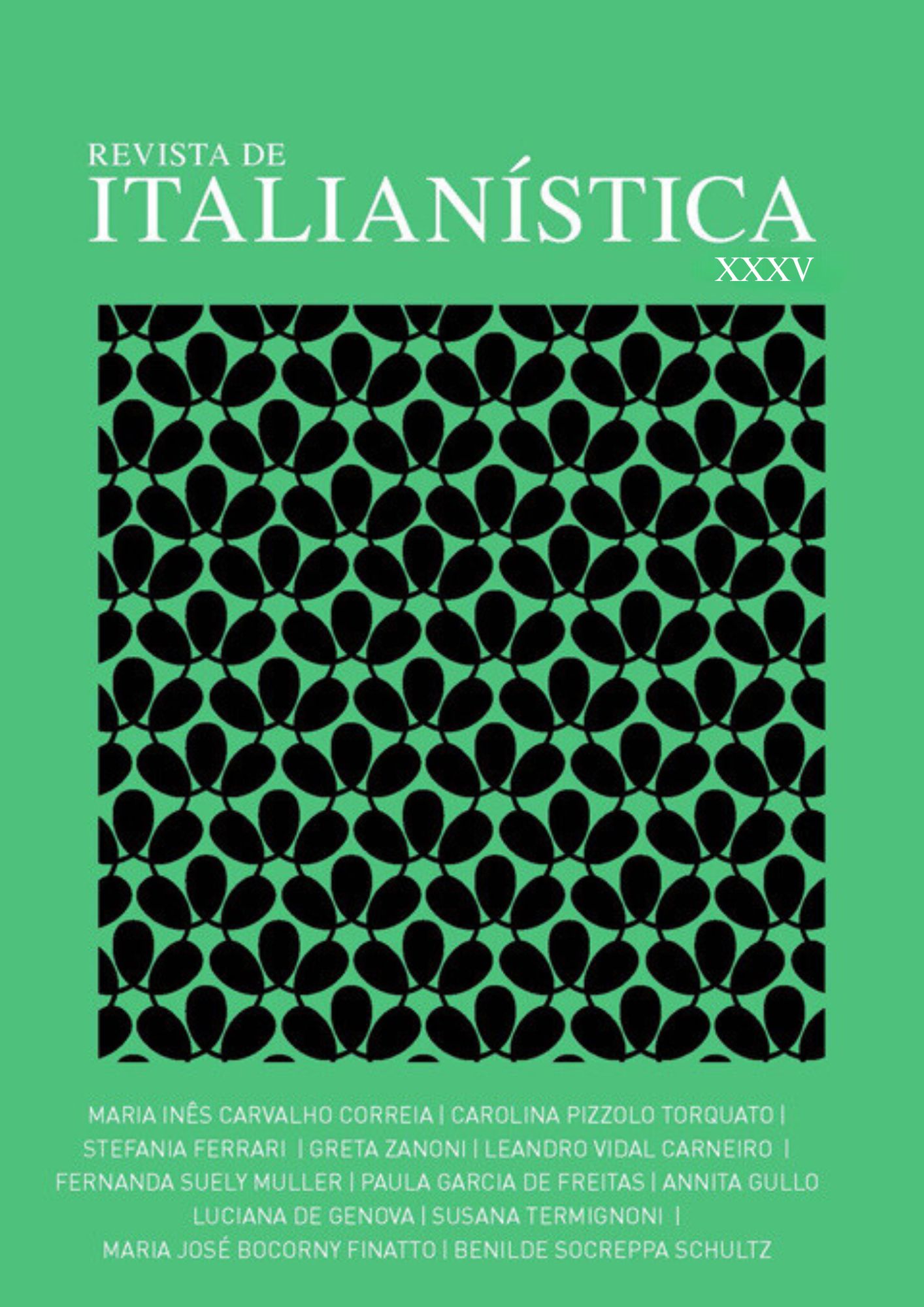Particularities of imperfect tense in the italian L2 textbook Nuovo Espresso 2
DOI:
https://doi.org/10.11606/issn.2238-8281.v0i35p54-83Keywords:
Teaching Italian L2, Verb tenses, Grammar, Analysis of italian textbooksAbstract
In this paper, we discuss the presentation and approach of verb tenses and aspectual values of the imperfect tense in Nuovo Espresso 2 (BALÌ; RIZZO, 2014) textbook, according to the most recent ideas about second language teaching in the communicative context of the post method (KUMARAVADIVELU, 2006) and the premise of the communicative purposes from the functionalist currents (PEZZATI, 2011) as well. In an even more specifi c way, we address the imperfetto presented in this textbook from the perspective of the real mode and the didactic strategies used by the authors during the phases of globality, analysis, reflection and synthesis. The results point out that the authors emphasize the iterative and descriptive functions of the imperfect tense of Italian, presenting motivational and prototypical texts of the occurrence of these functions, so that the learner can achieve the following communicative competences: narrating facts from childhood, telling about trips and habits of the past or describe past situations, ending up with learning verification exercises that include the apprentice’s ability to relate, complete table, texts, with verbal forms, or other
elements of the text, complete and/or link phrases, choose appropriate expressions, and identify functions. Although there is a balance in the presentation of these two functions, the data collected attest that the authors do not present in that textbook the narrative function of the imperfect, totally disregarding it.
Downloads
References
BERTINETTO, P. M. Tempo, aspetto e azione nel verbo italiano: Il sistema dell’indicativo. Firenze: Accademia della Crusca, 1986.
BORNETO, C. S. C’era una volta il metodo. Tendenze attuali della didattica delle lingue straniere. Roma: Carocci Editore, 1998.
COAN, M; BACK, A. REIS, M. FREITAG, R. As categorias verbais tempo, aspecto, modalidade e referência: pressupostos teóricos para uma análise semântico-discursiva. Estudos Lingüísticos, Campinas/São Paulo, v. 35, p.1463-1472, 2006.
CORÔA, M. L. M. S. O tempo nos verbos em português: uma introdução à sua interpretação semântica. São Paulo: Parábola, 2005.
COSTA, S. B. B. O aspecto em português. 2.ed. São Paulo: Contexto, 1997.
DIADORI, P. Quali modelli operativi per l’italiano L2? L’unità di lavoro. In: Diadori, P. (a cura di). La DITALS risponde 6. Perugia: Guerra Edizioni, 2009.
DIADORI, P; PALERMO, M., TRONCARELLI, D. Manuale di didattica dell’italiano. Perugia: Guerra, 2009.
FARKAS, M. Le funzioni dell’imperfetto “modale” italiano in ungherese. Analisi a confront. Nuova Corvina: Rivista di Italianistica dell’Istituto di Cultura per l’Ungheria, Budapeste, n. 4, p.69-74, 1998.
FREDDI, G. Glottodidattica: fondamenti, metodi, tecniche. Torino: UTET, 1994.
FREITAG, R. M. K. Aspecto inerente e passado imperfectivo no português: atuação dos princípios da persistência e da marcação. Alfa, São Paulo, 55 (2): 477-500, 2011.
JAKOBSON, R. Linguística e Comunicação. São Paulo: Cultrix/Edusp, 1969, trad. de J. Paulo Paes e I. Blikstein.
KUMARAVADIVELU, B. Understanding language teaching: from method to postmethod. New York, Routledge, 2006.
PEZZATI, E. G. O funcionalismo em linguística. In: Mussalim, F.; Bentes, A. C. (orgs.). Introdução à linguística: fundamentos epistemológicos. V.3, 5. ed. São Paulo: Cortez, 2011. p.165-217.
PONA, A. Modelli operativi nella didattica dell’italiano come Lingua Seconda. Materiali didattici per il ciclo di incontri “Didattica dell’Italiano come Lingua Seconda: il ruolo della Biblioteca Lazzerini di Prato sul territorio. Prato: Biblioteca Comunale Lazzerini, 2015. Disponível em: <http://allegati.ponet.prato.it/dl/20150122133635783/Modelli_operativi_nella_didattica_dell_italiano_L2_Alan_Pona.pdf>. Acesso em: 26 ago. 2017.
PORCELLI, G. Principi di glottodidattica. Brescia: La Scuola, 1994.
REICHENBACH, H. Elements of symbolic logic. Nova York: The MacMillan Company, 1948 [1947].
SANTORO, E. Tradução e ensino de línguas estrangeiras: confluências. Cadernos de Tradução, Florianópolis, v. 1, n. 27, p. 147-160, nov. 2011. ISSN 2175-7968. doi: http://dx.doi.org/10.5007/2175-7968.2011v1n27p147. Disponível em: <https://periodicos.ufsc.br/index.php/traducao/article/view/2175-7968.2011v1n27p47>. Acesso em: 07 set. 2017.
SALVI, G; VANELLI, L. Grammatica essenziale di riferimento della lingua italiana. Firenze: Le Monnier, 1992.
SENSINI, M. La Grammatica della Lingua Italiana. Milano: Mondadori, 1990.
SERIANNI, L. Grammatica Italiana. Torino: UTET, 1988.
TÓTH, L. Contributi ai valori dell’imperfetto italiano. Nuova Corvina: Rivista di Italianistica dell’Istituto di Cultura per l’Ungheria, Budapeste, n. 5, p. 247 – 255, 1999a.
TÓTH, L. Sulla globalità dell’azione (in relazione all’imperfetto “narrativo” e all’aspetto “inclusivo”). Nuova Corvina: Rivista di Italianistica dell’Istituto di Cultura per l’Ungheria, Budapeste, n. 6, p. 135 – 141, 1999b.
VARGAS, M. V. Verbo e práticas discursivas. São Paulo: Contexto, 2011.
VEDOVELLI, M. L’italiano degli stranieri: storia, attualità e prospettive. Roma: Carocci, 2002.
Downloads
Published
Issue
Section
License
Copyright (c) 2017 Revista de Italianística

This work is licensed under a Creative Commons Attribution-NonCommercial-NoDerivatives 4.0 International License.
A revista retém os direitos patrimoniais dos artigos e os publica simultâneamente sob uma Licença Creative Commons-Atribuição-Não Comercial-Sem Derivações.



